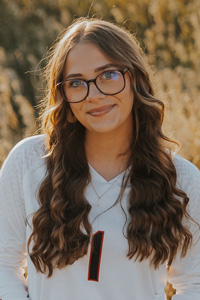By Madison Lile
Education’s definition is the process of teaching and learning, and the knowledge and skills that are acquired through this process. I fully believe that our education should be beyond learning just what the “standards” are. School is there to provide us students with a base for either a career or college, but it should also provide connections and discussion about complex ideas that aren’t always inherited or given. As a young, white teen who comes from a predominantly white school and community, most of my cultural knowledge and experiences are through different forms of literature.
Books can sometimes be thought of as windows and mirrors. As windows they allow us to look into other people’s lives and delve into cultures we don’t fully understand. Books can challenge our assumptions and world views. They also cultivate empathy by presenting us with narratives that might allow readers to experience an environment, letting them gain insight into diverse traditions, religions, joys and even, struggles. On the other hand, books also mirror or reflect who we are: our own experiences, identities and feelings that are hard to express. This is important for individuals from underrepresented or marginalized communities, for they rarely see themselves authentically shown in the media. When readers discover narratives that resonate with them, they feel validated. They feel understood, and even, empowered. So, why take this away?
In recent times, the banning of books in schools has grown immensely and will continue to grow unless we educate ourselves on why these works of literature are truly influential and necessary. Some of the books being banned often contain either “graphic” events, harsh language, deal with LGBTQIA+ characters, or have some cultural and racial themes. These topics can be challenging, but they need to be acknowledged and discussed to help us understand complex issues.
Historically and again more recently, there have been examples of targeted censorship, or the silencing of certain groups/people. According to the article “Banned in the USA: Beyond the Shelves” by Pen America, 44% of the books that are banned are about people and characters of color and 39% are LGBTQIA+ people and characters. Geographically, Florida and Iowa recorded the highest number of book bans during the 2023-2024 school year with over 4,500 book bans in Florida and over 3,600 in Iowa.
Personally, I have read several books that happen to be on the banned list. One example is “The Hate U Give” written by Angie Thomas. It is a Young Adult (YA) novel with a narrative that explores themes of racism, injustice and police brutality. This was challenged and banned in most school libraries due to “profanity” and racial terms. It was also believed to send an anti-police message. However, this book is influential because of the challenge it asks of us to confront the truths about race and systematic injustice.
Another book I feel is important is “The Perks of Being a Wallflower” by Stephen Chbosky. It was banned and challenged for depiction of sexual abuse and LGBTQIA+ content. Yes, these may be topics that some feel are not student appropriate, but the overall messages of belonging, overcoming traumatic events and connecting are important for our own character development.
And lastly “To Kill a Mockingbird” written by Harper Lee, considered an American classic, was banned because of violence and its use of the N-word. Beyond these issues however, it is a story of growing up and learning right from wrong. This book’s message stems from its own title – “To Kill a Mockingbird.” Persecuting the innocent because of our differences harms society.
If we don’t step forward and address the book bans, the ignorance that people face will only lead to more communication and cultural barriers, impeding the development of empathy and open-mindedness. It will silence narratives and bond narrow minds together. The danger that lies in book banning is the disappearance of ideas and identities, keeping people ignorant about each other’s experiences. The windows to other environments will become foggy and mirrors will lose their reflection.
Madison Lile is a Spring Grove High School student, one of 15 area students participating in the Journal Writing Project, now in its 26th year.

